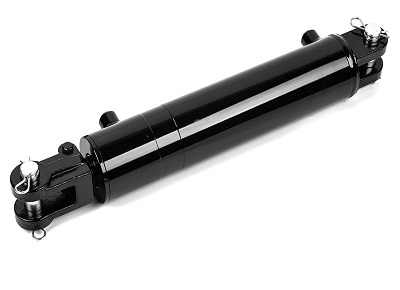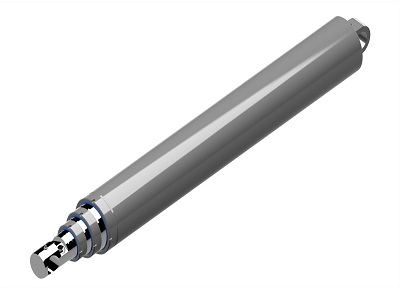A hydraulic cylinder is a critical component of a dump truck's hydraulic system, with wide applications across various industries. The maintenance and care of a dump truck hydraulic cylinder is a systematic process, involving everything from routine cleaning to checking key components, from proper operation to precise lubrication. When selling a dump truck hydraulic cylinder, special attention must be given to ensure a successful sale and enhance customer satisfaction.
The maintenance of a dump truck hydraulic cylinder involves several practices, including cleaning, inspecting, lubricating, and operating the cylinder correctly. Regular cleaning of the cylinder's exterior, checking the condition of seals and hydraulic oil, and replacing damaged components promptly are essential to extend the life of the cylinder. Proper lubrication of moving parts like pistons and avoiding overloading or excessive tilting during operation are also crucial for maintaining optimal performance. These maintenance actions help keep the hydraulic cylinder in excellent working condition, ensuring the proper functioning of the dump truck.
Keeping the hydraulic cylinder's exterior clean is a basic but important task. Dust, dirt, and debris that accumulate on the cylinder surface can not only detract from its appearance but also cause wear on delicate internal components if left unchecked. Regularly wiping the cylinder with a clean, soft cloth is essential to prevent dirt and contaminants from accumulating on the surface.
Hydraulic oil, which is the "lifeblood" of the hydraulic cylinder, is critical for optimal operation. The quality of hydraulic oil must be checked regularly. If the oil becomes contaminated or degraded, it should be replaced immediately. Moreover, controlling the temperature of the hydraulic oil is important since high oil temperatures can significantly shorten the lifespan of seals. Installing a cooling system, such as a heat exchanger, can help regulate the oil temperature.
Seals act as the "guardians" of the hydraulic cylinder. When seals wear out or degrade, the cylinder becomes susceptible to internal leakage and other failures. Regular inspection of seals is necessary, and any defective seals should be replaced promptly to avoid further damage.
In addition, it is crucial to prevent the hydraulic cylinder from being struck or impacted during operations. The dump truck works in challenging environments, and the cylinder can unintentionally come into contact with hard objects, leading to irreversible damage. Overloading or excessive tilting during operation should also be avoided to protect the cylinder and prolong its lifespan.
Fully Demonstrate Product Features
When selling a dump cylinder, sales personnel should fully understand and effectively communicate the product's features, such as its load capacity, stroke length, accuracy, and durability. Through detailed product descriptions and live demonstrations, customers should gain a clear understanding of the hydraulic cylinder's performance and advantages, which will increase their confidence in making a purchase.
Understand Customer Needs
Sales representatives should engage in thorough communication with customers to understand their specific requirements and operating conditions. Providing customized solutions based on different industries and customer needs ensures that the product meets the customer's practical applications. Additionally, sales staff should consider the customer;s budget and timeline, offering cost-effective solutions that provide optimal value for their investment.
Provide Comprehensive After-Sales Service
After-sales service is a crucial aspect of a dump truck hydraulic cylinder for sale. Sales representatives should clearly explain the terms of after-sales services, including warranty periods, repair processes, and parts availability. Providing excellent after-sales support builds customer trust and enhances satisfaction, fostering long-term relationships.
Ensure Legal and Regulatory Compliance
When selling a dump truck hydraulic cylinder, sales personnel must adhere to relevant laws and regulations to ensure the product's legality and compliance. This includes meeting product quality standards, safety certifications, and environmental regulations. Ensuring compliance is not only a responsibility to the customer but also protects the company's reputation and ensures long-term success.
A dump truck hydraulic cylinder for sale requires sales personnel to have in-depth product knowledge and excellent communication skills to fully understand customer needs and provide tailored products and services. Emphasizing after-sales support and ensuring legal compliance are also essential for a successful sale. Additionally, proper maintenance of the hydraulic cylinder ensures it remains in peak operating condition, providing solid support for the efficient operation of the dump truck.


